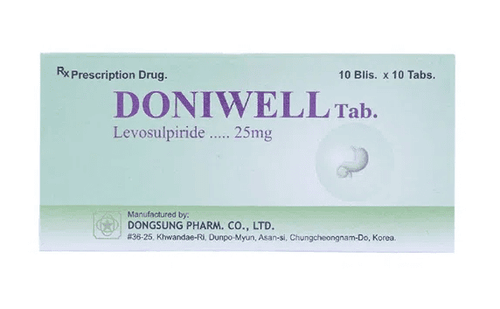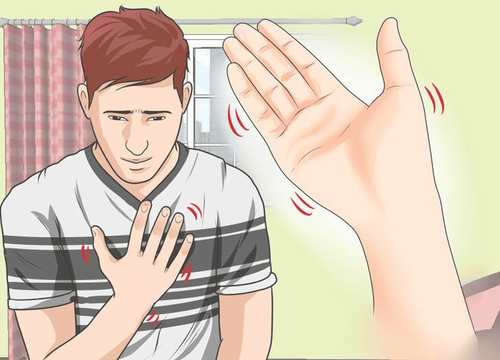This is an automatically translated article.
Article by Specialist Doctor I Vo Khac Khoi Nguyen - Orthopedic Trauma Doctor - General Surgery Department - Vinmec Central Park International General Hospital
Fatigue syndrome often goes unnoticed until it becomes a chronic condition. The telltale sign of fatigue is post-exercise fatigue associated with many neurological, cardiovascular, respiratory, and digestive problems. Patients may also present with symptoms of uncontrolled anxiety, panic attacks, and impaired social functioning.
Nowadays, early diagnosis and treatment of fatigue syndrome is very important to prevent high morbidity and great impact on quality of life. Treatment requires the coordination of many different specialties. Treatment modalities include medication, psychotherapy, and exercise therapy.
1. Pay attention to adequate and reasonable nutrition
Adequate and reasonable nutrition is the first condition to help the body have enough energy and recover. Lack of nutrition, or improper nutrition is one of the causes of fatigue. Supplementing with nutritional deficiencies and balances requires consultation with a dietician. Nutrition can be balanced through diet and supplements. Supplements can be seen as an alternative treatment that can be more tolerable and more helpful. Supplements may be beneficial for fatigue patients with specific nutritional deficiencies. Therefore, biochemical testing should be performed to look for substances that are deficient in the body before treatment to guide treatment options. Several studies have shown that the amino acid L-carnitine and the acyl derivative L-carnitine are required for the transport of fatty acids into mitochondria during lipolysis to generate metabolic energy in muscle and in the brain. improve physical and mental fatigue. Essential fatty acids such as γ-linolenic acid (GLA) along with fish oil containing eicosapentaenoic acid (EPA), DHA also resulted in a significant overall improvement in symptoms of fatigue, muscle pain, dizziness, and poor concentration. and depression.
Vitamin B12 in combination with a high daily dose of folic acid taken by mouth may be safe and effective for fatigue. Antioxidants (including α-lipoic acid, vitamin E or C) are a group of vitamins, minerals, and enzymes that help protect cells from damage caused by oxidative stress and also improve mitochondrial function . Taking a multivitamin and mineral supplement can be a safe and easy way to improve symptoms for a person.

2. Cure fatigue syndrome with cognitive-behavioral psychotherapy
Doctors always emphasize that thoughts and psychology play a leading and guiding role in the patient's actions and emotions. Patients need to recognize the behaviors that make them feel more tired and find ways to minimize them as much as possible. Approximately 25-40% of patients with chronic fatigue syndrome may have anxiety and depression associated with it. In the process of facing reality, family, friends, and colleagues act as spiritual support for the patient. Patients need to learn how to face and solve problems rather than avoiding and giving up.
3. Treatment with exercise therapy
The exercises are aimed at improving the patient's physical health, indirectly bringing the patient back to the current rhythm of life and having a more positive life attitude. People with fatigue syndrome are often passive in thinking and lead a sedentary, sedentary lifestyle. Exercises should be designed to gradually increase the intensity and duration of physical activity. Practicing under supervision or with teammates will have the effect of enticing the patient to participate, avoiding psychological depression and giving up. According to the recommendations of the World Health Organization, physical activity should be at least 30 minutes a day, and most days of the week (minimum 5 days a week). However, do not try to exercise too much because it may cause pain and counterproductive effects. More than half of the patients with chronic fatigue syndrome felt much better after 12 weeks of treatment with exercise. Exercise will lead to reduced fatigue through increased physical fitness, helping patients reduce their tendency to focus on their symptoms, and increasing their confidence in themselves that they can recover.
4. Pharmacotherapeutic treatment
Pharmacological treatments cannot be applied alone, but can control the disease. But medications are used to help relieve symptoms and make the person feel better. The list of medications prescribed for this condition is extensive, from pain relievers and non-steroidal anti-inflammatory drugs (NSAIDs), anticonvulsants, antidepressants, narcotic psychotropic drugs, to antidepressants. viruses, immunomodulatory drugs.
The most important symptoms commonly seen in fatigue syndrome are: musculoskeletal pain, headache, anxiety, depression, emotional disturbances, sleep disturbances and cognitive dysfunction. Anti-inflammatory pain relievers such as ibuprofen and naproxen help relieve musculoskeletal pain, headaches, and reduce fever. Anticonvulsants such as gabapentin and pregabalin are sometimes prescribed for nerve pain and to improve sleep problems. Antidepressants to ease depression and anxiety, enhance concentration, and improve sleep quality. Many antidepressants help improve sleep, pain levels, and fatigue severity. The doses used here are usually lower than those used to treat depression. Psychotropic drugs such as tramadol, codeine, or morphine are sometimes prescribed to treat severe pain that is poorly responsive to conventional pain relievers. However, this class of drugs is only for severe cases and is used only for a short time because of the risk of addiction.

In summary, fatigue syndrome is a common problem, but little attention and proper intervention. Most patients need medical attention when they are in the chronic fatigue phase. The telltale sign is fatigue after exertion related to many diseases of the nervous, cardiovascular, respiratory, as well as gastrointestinal tract. Patients may also present with symptoms of uncontrolled anxiety, panic attacks, and impaired social functioning. From these diverse manifestations, the treatment is also difficult and complicated. To achieve effective treatment, we need the coordination of many specialists and many treatment modalities.
Vinmec International General Hospital now has a periodical health checkup package, suitable for each object, age, and customer needs. Through the examination, the doctor will accurately assess the current health status as well as prevent the risk of diseases that you may have, advise on a complete nutrition regimen. All examination procedures at the hospital are performed by a team of qualified doctors, combined with modern equipment. Therefore, you can be assured of the quality of medical care at Vinmec.
Please dial HOTLINE for more information or register for an appointment HERE. Download MyVinmec app to make appointments faster and to manage your bookings easily.














